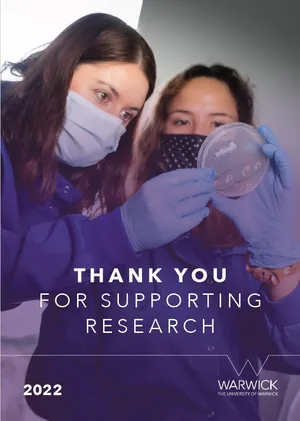Your Research Annual Report

Your generous donation is making a big difference
Thank you so much for giving to the University of Warwick. This year's Research Annual Report demonstrates how you are creating lasting value in society and the economy through supporting research. You are helping us attract the world’s best thinkers and locate them in the best facilities. Learn more in your full report for this year.
Our ambitious vision for the future is one in which our research will transform the way that we understand this world, and perhaps worlds beyond this planet, creating lives that are healthier, safer, just, more resilient, and fulfilled. Thank you for your continued support in helping us achieve this.
Read the full version of the report in PDF format here
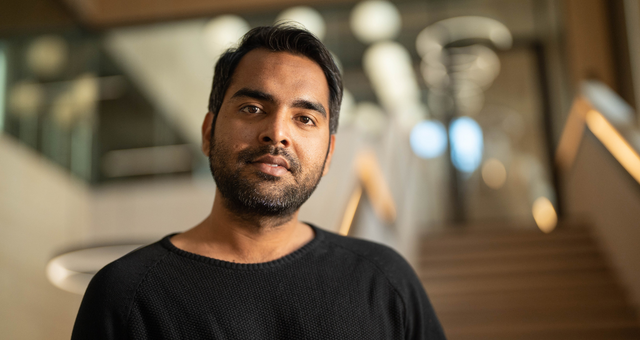
Researcher spotlight
You’ve brought research leaders from around the world together to create an inclusive research network. My scholarship has massively contributed to my potential that I don’t have to worry about monetary barriers now, I can just focus on my research and its impact.
Ankit Shanker, PhD student, Institute for Global Pandemic Planning
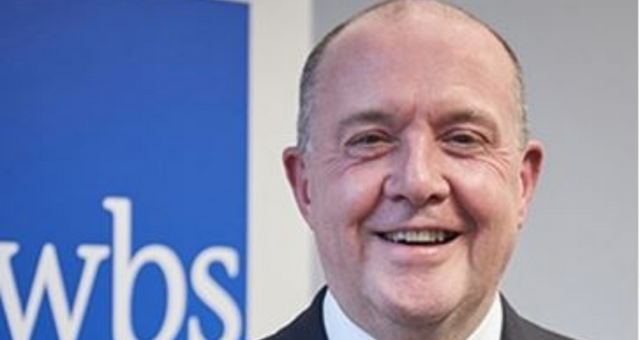
Donor spotlight
Warwick’s interdisciplinary, collegiate research environment was one of the motivators for me establishing the FinTech centre and in supporting the new Institute for Global Pandemic Planning. The same strengths are as much, if not more, important to my support for the IGPP.
Loyal donor Clive Gillmore (BSc Management Sciences, 1982)

Big babies, best outcomes
A generous legacy gift is supporting a clinical trial in the Centre for Early Life to help ensure the best outcomes for babies who are large for their gestational age at birth.
The gift is allowing researchers from disciplines ranging from obstetrics and psychology to health economics, to work together on a unique study with important implications for birth management and child development.

Fellowship programme welcomes academics from Ukraine
An international research fellowship scheme run by the University of Warwick has filled its final positions, with six of the new researchers joining from universities in Ukraine.
The Fernandes Fellowship programme is supported by alumnus, Rui Fernandes (BSc Economics, 1995-
98), and is designed to develop lasting research collaborations between Warwick and Europe.
Donate Link opens in a new windowLink opens in a new window
Get in touch
We would love to hear your feedback on the report, so please get in touch with us using the contact details below:
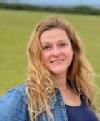
Anne-Marie Vassiliadis
Head of Events and Donor Relations
anne-marie.vassiliadis@warwick.ac.uk
07385 037139
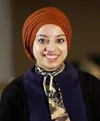
Sabath Shazia
Donor Relations Officer
sabath.shazia@warwick.ac.uk
07341 072425
Click to read the report
Did you know?
Launched in May 2022, the Warwick Africa Hub will be the focal point within the University for coordinating and monitoring the Warwick Africa Partnerships Strategy. The hub will engage with African universities to jointly address major global development challenges.

